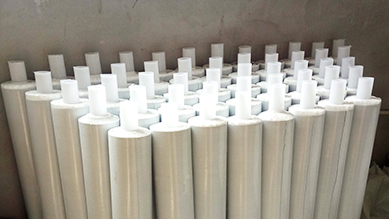High Temperature Insulation Tape A Comprehensive Overview
In the world of thermal management and insulation, one product stands out for its versatility and performance—high temperature insulation tape. This specialized tape is engineered to withstand extreme temperatures, making it an essential component in various industries, including automotive, aerospace, electrical, and manufacturing. This article delves into the features, applications, and benefits of high temperature insulation tape, highlighting why it is a vital tool for professionals in numerous fields.
Understanding High Temperature Insulation Tape
High temperature insulation tape is designed to offer resistance against heat, making it suitable for environments where traditional adhesives and tapes fail to perform. Typically made from materials such as silicone, fiberglass, and polyimide films, the tape can withstand temperatures often exceeding 500°F (approximately 260°C). The specific formulation and manufacturing processes ensure that the tape maintains its integrity and performance even under the most challenging conditions.
Key Features
1. Temperature Resistance As the name suggests, one of the primary features of high temperature insulation tape is its ability to resist high temperatures without degrading. This property is critical for applications in industries such as aerospace and automotive, where components are exposed to extreme heat regularly.
2. Electrical Insulation High temperature insulation tape often boasts excellent dielectric properties, making it an effective electrical insulator. This feature is particularly crucial in electrical applications where heat is generated, and preventing short circuits is paramount.
3. Chemical Resistance Many formulations of high temperature insulation tape also exhibit resistance to various chemicals, oils, and solvents. This quality ensures that the tape can be used in industrial environments where exposure to such substances is commonplace.
4. Durability The construction materials used in high temperature insulation tape are designed for durability. They are often resistant to wear and tear, extending the lifespan of the tape even in demanding situations.
5. Ease of Application High temperature insulation tape is typically easy to handle and apply. It can be torn by hand or cut to size, allowing for flexible use in different configurations and applications.
Applications
High temperature insulation tape finds use in a broad spectrum of applications across various industries
high temp insulation tape

- Automotive In vehicles, high temperature insulation tape is utilized for insulation of wiring harnesses, as well as for thermal protection near exhaust systems and engines that operate at high temperatures. - Aerospace The aerospace industry employs this tape for its lightweight and heat-resistant properties, particularly in insulating and protecting critical components in aircraft.
- Electrical In electrical applications, high temperature tape is used to insulate wire connections, protect components from excess heat, and enhance the safety and reliability of electrical systems.
- Manufacturing In industrial manufacturing, the tape is often used to secure insulation materials, wrap pipes, and provide thermal protection in ovens and furnaces.
Benefits
The advantages of using high temperature insulation tape are significant
1. Enhanced Safety By providing effective insulation and protecting against electrical shorts, high temperature insulation tape contributes to a safer working environment.
2. Improved Efficiency By maintaining the efficiency of heat-sensitive components and reducing energy loss, this tape can help improve the overall operational efficiency of machines and equipment.
3. Cost-Effectiveness While the initial investment in high temperature insulation tape may be higher than standard tape, its durability and performance can lead to long-term savings by reducing the need for frequent replacements and maintenance.
4. Versatility The wide range of applications makes this product versatile enough to meet the needs of various industries, making it a worthwhile addition to any professional toolkit.
Conclusion
High temperature insulation tape is more than just a simple adhesive; it is a vital tool that plays an essential role in ensuring safety, efficiency, and durability in high-temperature environments. With its impressive array of features and applications, it is easy to see why professionals across multiple sectors rely on this product. Whether you are in automotive, aerospace, electrical, or manufacturing industries, investing in high temperature insulation tape can prove beneficial, enhancing performance and reliability in your operations.
-
Types of Electrical and Industrial Tape and Their DifferencesNewsAug.04,2025
-
The Versatile Uses of Rubber Tape in Daily LifeNewsAug.04,2025
-
Key Features of Automotive Wire Harness PVC TapeNewsAug.04,2025
-
Key Benefits of Using Linerless Insulating Rubber Tape in Electrical WorkNewsAug.04,2025
-
How to Choose the Right Rubber TapeNewsAug.04,2025
-
How to Apply PVC Warning and Floor Marking Tape for Maximum DurabilityNewsAug.04,2025
